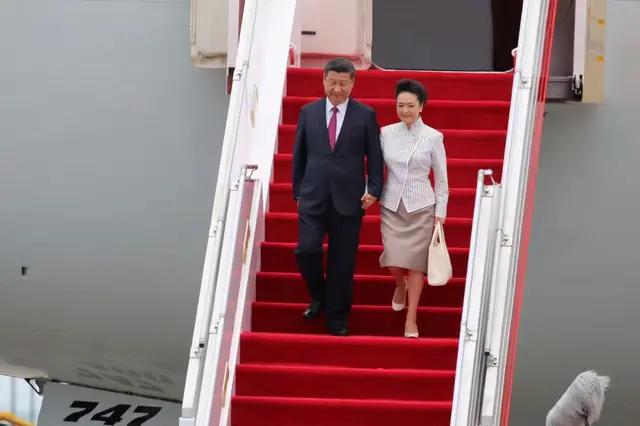Chinese President Xi Jinping set foot on Hong Kong Thursday.
Xi, also general secretary of the Communist Party of China (CPC) Central Committee and chairman of the Central Military Commission, is here to attend celebrations marking the 20th anniversary of Hong Kong's return to the motherland, and the inauguration of the fifth-term government of the Hong Kong Special Administrative Region (HKSAR).
He will also inspect the special administrative region.
This is Xi's first trip to Hong Kong as Chinese president.
Xi and his wife Peng Liyuan were greeted by a group of high-ranking officials at the airport, including HKSAR Chief Executive Leung Chun-ying and Chief Executive-elect Lam Cheng Yuet-ngor.
Continuous support to Hong Kong
President Xi Jinping said that the central government will as always support the Hong Kong Special Administrative Region (HKSAR) in growing its economy and improving people's wellbeing.
Xi made the remarks upon his arrival at the Hong Kong International Airport for a three-day trip. He will attend celebrations marking the 20th anniversary of Hong Kong's return to the motherland and the inauguration of the HKSAR's fifth-term government. He will also inspect the HKSAR.
Speaking to reporters at the airport, the president said his Hong Kong tour would serve to express best wishes for the HKSAR, showcase the central government's support for Hong Kong, and help the region plan its future.
Xi congratulated the HKSAR on the great achievements it has made over the past 20 years since its establishment, and encouraged the HKSAR to create new glory.
The central government, which has offered strong backing for Hong Kong in the past 20 years, will as always support the HKSAR in growing its economy and improving people's wellbeing, Xi said.
He also said he would join people from all walks of life in Hong Kong to review the SAR's extraordinary 20-year journey, sum up its experience and plan the future to ensure the smooth and long-term successful practice of the "one country, two systems" policy.
 简体中文
简体中文





